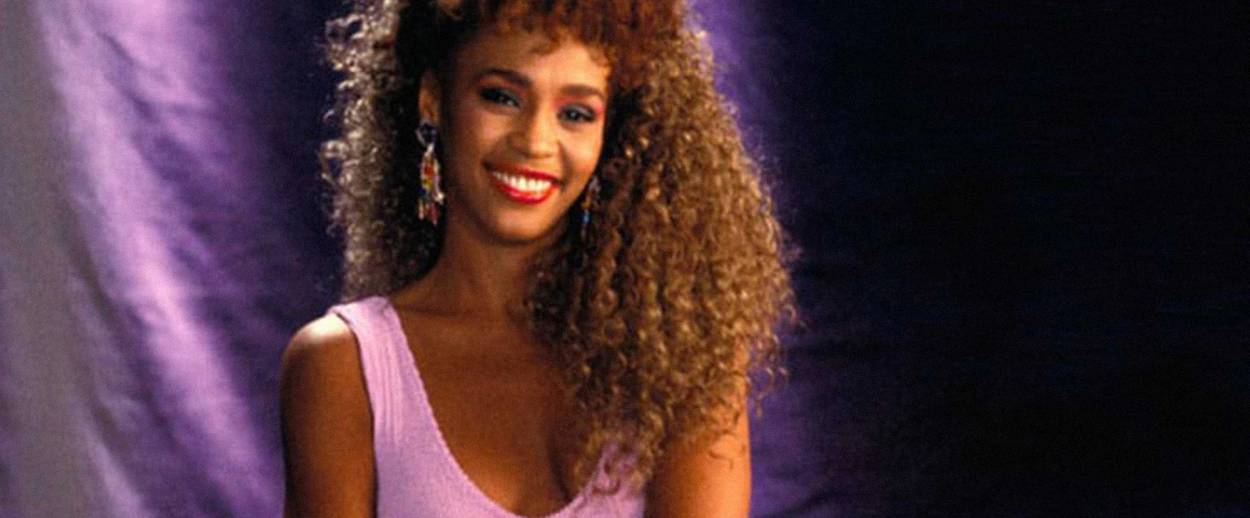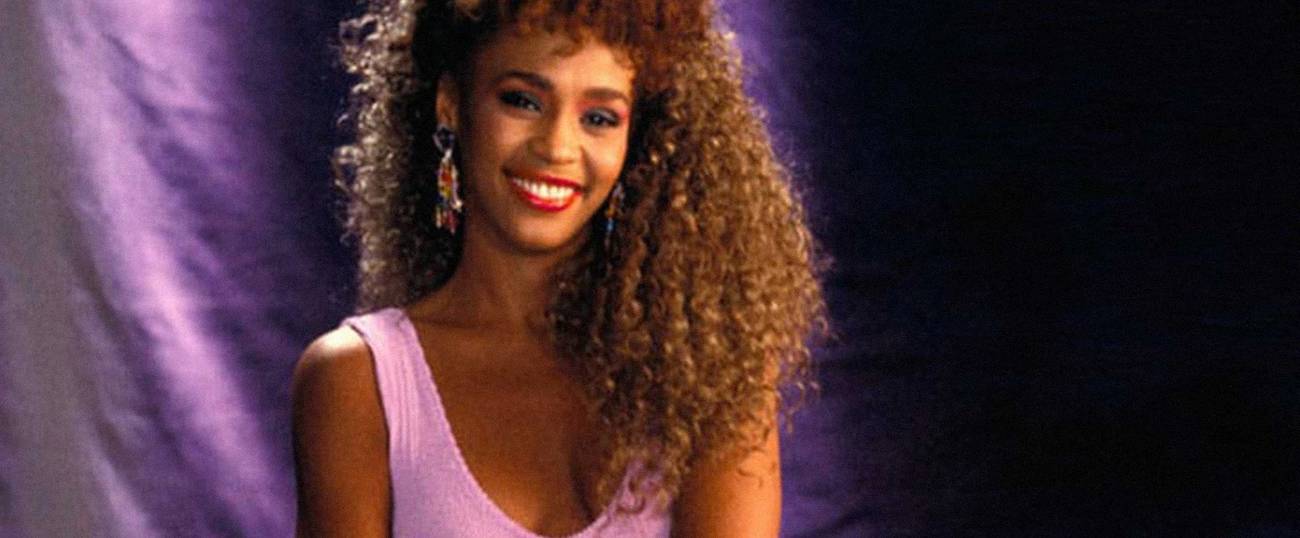And I
Whitney Houston’s music played at bar mitzvahs across America in the 1990s—the theme songs of a forgotten adolescence




Whitney Houston would have turned 55 today, August 9, 2018. This article originally appeared shortly after her death in February, 2012, at age 48.
***
About 20 minutes after Whitney Houston’s death was confirmed by all mainstream media outlets, I saw a Tweet from my good friend and colleague, Jewcy’s Jason Diamond: “The countdown to somebody writing about Whitney Houston’s Jewish connection begins now …”
Well, Jason, I guess it might as well be me. Her funeral will be held Saturday, Feb. 18—exactly a week to the day that the Queen of Pop was found unresponsive in her bathtub at the Beverly Hills Hilton—at the Newark church where she first showed the public the power of those unforgettable pipes. Doubtless there will be a Jew or two in the invite-only audience: Clive Davis, of course, the “Jewish uncle,” mentor, and lifelong protector, enabler, and friend, who discovered her as a teenager and managed to turn her into the first black female artist that White America felt comfortable truly embracing; perhaps Billy Joel, who likes to tell the story about how he reluctantly indulged a very young model who asked if she could sing along when he was fooling around on the piano in a hotel lounge once, only to be blown away by the voice that was soon to be among the most recognizable in the world. Maybe even a Black Hebrew or two, come from the village of Dimona in southern Israel to mourn their most famous honorary citizen—a laurel conferred during Houston’s 2003 visit to Israel, when she declared the country “home” before a benignly puzzled Ariel Sharon, whose hand she then weirdly refused to shake.
Any one of these “Jewish connections” could provide ample fodder for a Yiddishe Whitney piece. But not this one. Because this piece isn’t about any of Whitney Houston’s connections to Judaism. It’s about Whitney’s connection to my own Judaism.
The school year of 1992 was a time of great schism in popular music. It was also my bat mitzvah year, which meant that practically every weekend was another opportunity to view this seismic rift in teen culture in action, made all the more toxic by the fact that we were growing up in Omaha, in a Jewish community that was not so much “tight-knit” as crafted from a single, unbroken fiber. On one side of the room stood the aficionados of the newly exploded “grunge”—music our parents feared would inspire us to drop out of college and become suicidal, heroin-addicted baristas/bass guitarists in Seattle; on the other, the fans of gangsta rap—music their parents feared would make them drop out of high school to become murderous, crack-addicted pimps/drug dealers in South Central L.A. I was part of the former group. We “alternative kids”—as I had chosen to identify, more out of aesthetic preference than anything else; the only cassette tape I had personally owned prior to beginning middle school was the original Broadway cast recording of Camelot—would thrash violently across the movable parquet dance floor of the ballroom of the Omaha Marriott to “Smells Like Teen Spirit” (or in a pinch, “Bohemian Rhapsody”; Freddie Mercury was Kurt Cobain’s self-professed idol, after all) while the hip-hop kids pointed and snickered; they, in turn, would raise their knees and hands high in the air, staggering under the weight of their invisible Glocks, as we sneered in sullen derision. They called us freaks, we called them … well, I don’t want to say what we called them.
This monumental and seemingly irreconcilable conflict made us feel important, as though we were standing for principles greater than ourselves. Verbal fights were common; once or twice things even (almost) came to blows. Naturally, our parents were baffled: How divided could two groups of nerdy upper-middle-class Jewish children, almost uniformly destined to lives of corporate law and event planning in comfortable suburbs of medium-sized Midwestern cities possibly be? Surely, we had more in common than we had different. Yeah, we retorted, but so did the Israelis and the Palestinians.
And yet, there was one thing that could bridge this otherwise untraversable gap. That thing—or rather, person—was Whitney Houston.
That year, the soundtrack to The Bodyguard was inescapable. With an astonishing 44 million copies eventually sold, in the first autumn of its release it was everywhere, blasting out of every tape deck, every radio, and over the loudspeakers of every conceivable public gathering place: However pure your musical ideology, eventually you had to give yourself over to it or go mad. And inevitably, there came a time at every bar mitzvah party when the disc jockey, usually prompted by a mother tired of the Nirvana vs. N.W.A. West Side Story-like dance warfare going on at a party she’d gone back to substitute teaching to pay for, would murmur into the microphone that he was going “slow things down.” Whitney’s crystalline melisma would come floating through the sound system: If I-I-I-I…shou-ou-ould stay … and the desperate adolescent need to touch overwhelmed the insurmountable rivalries of just moments before.
Boys in eyeliner danced with girls in door-knocker earrings; girls with faded fuchsia stripes in their hair pressed their cheeks against the washable silk shirts of boys whose mustard-colored pants slung so low they looked like a reflection in a funhouse mirror. Parents, even the ones who didn’t dance, stared in awe at the strange little shidduchs suddenly swaying in time, bodies pressed together as though one couldn’t stand without the other’s support, Whitney’s unbreakable voice guaranteeing a powerful permanence in a world we knew was already disappearing. We get older; so would our parents, and we would go our separate ways. But somehow, the song seemed to insist that no matter what happened, some part of us would always belong, would remain here; with each other, with our community, to this funny little group of Jews in the middle of nowhere, our little shtetl on the prairie. We would always love Whitney, and each other.
***
Like this article? Sign up for our Daily Digest to get Tablet Magazine’s new content in your inbox each morning.
Rachel Shukert is the author of the memoirs Have You No Shame? and Everything Is Going To Be Great,and the novel Starstruck. She is the creator of the Netflix show The Baby-Sitters Club, and a writer on such series as GLOW and Supergirl. Her Twitter feed is @rachelshukert.